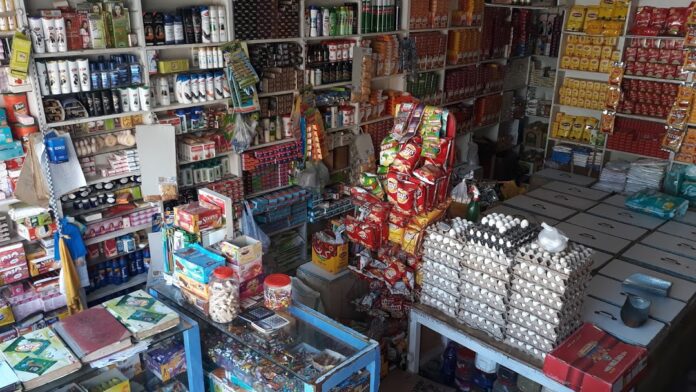ISLAMABAD: The Economic Coordination Committee (ECC) of the Cabinet on Friday gave approval to increase Ghee, Flour and Sugar prices.
The meeting of the ECC was held under the chair of Federal Minister for Finance and Revenue Shaukat Tarin.
The ECC on the summary of Ministry of Industries and Production approved the revision in prices of three essential commodities namely flour (20 kg bag) to Rs 950 from Rs820, Ghee (per kg) to Rs 260 from Rs170 and Sugar (per kg) to Rs 85 from Rs 68 respectively, owing to an increasing gap between the subsidized prices offered by Utility Store Cooperation and the prevailing market prices.
Besides, the chair also gave approval to extend the Prime Minister’s Relief Package-2020 providing subsidies on five essential commodities from 15th July 2021 to 30th September 2021 till the Enterprise Resource Planning (ERP) system becomes fully operational.
The ECC also approved a summary, presented by the M/o Commerce, regarding the elimination of Documents attestation fee for goods imported into Pakistan from Kenya as this Non-Tariff Measure (NTM) increases cost of business and transaction time.
The said decision by the Committee would facilitate trade between the two countries and enhance Pakistan’s market share in the region.
Sources said that Pakistan’s High Commission, Nairobi, Kenya has been charging a fee at the rate of fifty dollars per document or 0.5% of the invoice value of goods for attestation of the certificate and invoice related to such goods.
Pakistan’s High Commission to Kenya is collecting $0.643 million annually on account of the attestation fee, which is far less than the trade and economic benefit that Pakistan can reap by expanding its market share in the region, sources added.
Meanwhile, the ECC also approved a summary tabled by the Power Division regarding non-cash settlement for Power Sector re-lent loans against subsidies payable by government of Pakistan equal to Rs.116 billion.
The ECC approved the Kamyab Pakistan Program. A flagship program which shall extend micro-loans to entrepreneurs and farmers under “Kamyab Karobar” and “Kamyab Kissan” schemes, respectively.
The program shall also provide low cost housing loans through NAPHDA. The Kamyab Pakistan Program also includes an ongoing skill development program for educational and vocational training under the title “Kamyab Hunarmand”.
The Kamyab Pakistan Program is aimed at extending loans to 04 million households at the lowest strata, as registered with the National Socio Economic Registry (NSER) of Ehsaas. Loans worth Rs.0.5 million, Rs.0.150 million and Rs.0.2 million through Micro-Finance Providers for Kamyab Karobar and Kamyab Kissan at 0% mark up will be provided.
The third component of the scheme is introduction of a new tier in Naya Pakistan Low Cost Housing Scheme wherein loans of Rs.2.7 million (for NAPHDA) and Rs.2 million (for Non-NAPHDA) projects will be given at subsidized rates.
The salient features of the Kamyab Pakistan Program include loan size of Rs.150,000 (per crop) for purchase of agricultural inputs. The commutative disbursement under the program would be Rs.1.6 billion over the period of 03 years. It shall benefit 30,00,000 families.
The ECC commended all concerned for working out such a detailed program aimed at “bottom-up approach” for reducing poverty as envisaged by the Prime Minister. The Finance Minister stated that the consultative process was followed in working out modalities of the Kamyab Pakistan Program ensuring that all relevant stakeholders are on board and micro-loans shall be disbursed as per the given criteria.
The ECC also considered and approved the Draft Policy Directives related to Auction of Next Generation Mobile Services (NGMS) in Azad Jammu & Kashmir (AJK) as submitted by the Ministry of Information Technology and Telecommunication before the Committee. This is the first time that the NGMS will be auctioned in AJK and it will improve mobile broadband services in the region. Moreover, ECC also decided that for the payment of the Auctioned licence fee, the method in-vogue in the earlier auction processes will be followed.
The Ministry of Maritime Affairs presented a summary regarding award of Engineering Consultancy Service contract for up-gradation of Port Qasim Authority (PQA) amounting to Rs.86.6 million. The ECC approved the execution of the project.
ECC allowed Post Qasim Authority, Karachi Port Trust and Gwadar Port Authority Boards to transfer their Marine assets to the Pakistan Marine and Shipping Services Company Private Limited (PMSSC), a subsidiary of Pakistan National Shipping Corporation. The maximum rates to be charged by the Pakistan Marine & Shipping Services Company (PMSSC) from the Public Sector ports & harbours shall be determined from time to time by the Ministry of Maritime Affairs through a notification in official gazette.
The Ministry of National Food Security and Research (M/o NFS&R) presented a summary regarding procurement of 200,000 cotton bales by TCP to promote cotton production and bring stability in the domestic market. The ECC also approved the formation of the Cotton Price Review Committee (CPRC) with a mandate to review market price and propose intervention on a fortnightly basis.
The ECC also approved a summary by the M/o Industries and Production for importing 200,000 metric tons of sugar to build strategic reserves and minimize the role of speculative elements in the domestic market. In case of need, more reserves will be built through import, the ECC decided.
ECC approved the amendment in its earlier decision dated 19-02-2021 regarding the “Prime Minister’s” fiscal package for Agriculture in the wake of COVID-19 Kharif”. The package offered subsidies on DAP@1500Rs/acre for cotton and rice crops, during the Kharif Season 2021. Now according to the amendment, the farmers can avail subsidy on any phosphatic fertilizer according to their choice.




